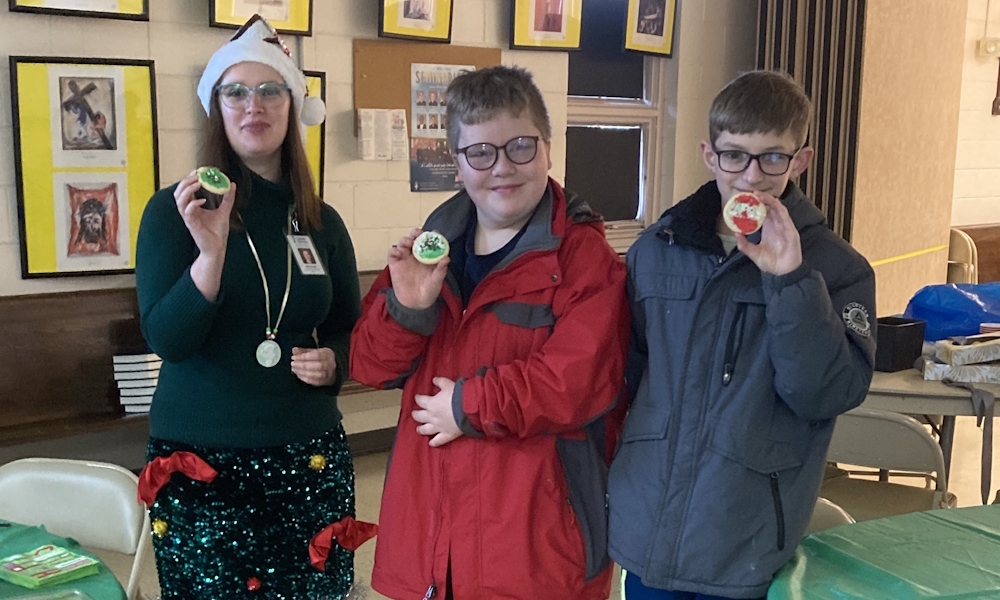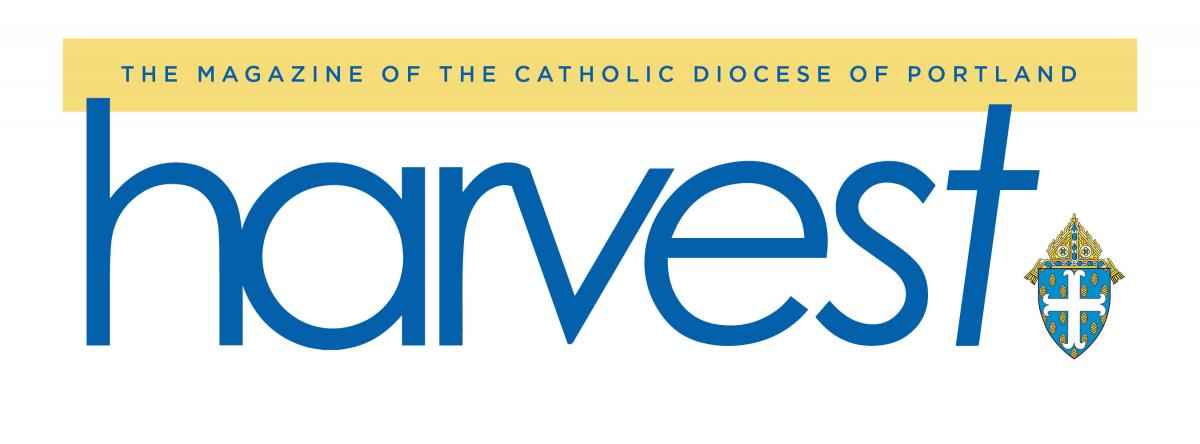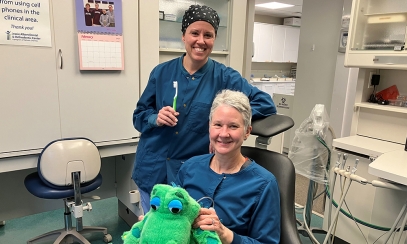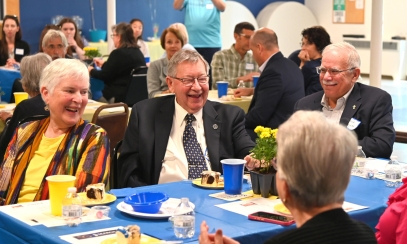
TVIs: Teaching skills, infusing hope
The variety of the work, the supportive environment, and the opportunity to help children and their families. Teachers of Students with Visual Impairments (TVIs) who work for Catholic Charities’ Maine Education Services for Blind and Visually Impaired Children (ESBVIC) say that is what makes their work so enjoyable and rewarding.
“I like being able to make a difference, while also being able to have something new happening every day,” says Melissa Egolf, who recently became a TVI. “You’re never going to get bored with this. No kids are the same. No two families are the same.”
“It’s never a dull moment. There is always something new, something exciting going on,” says Lori Spencer, a TVI for 37 years. “It’s very different from being in a school, but it’s wonderful.”
ESBVIC serves students from birth to age 22 or high school graduation, whichever comes first. It currently has 290 students around Maine.
“We serve students who are in public schools, private schools, homeschooled,” says Nancy Moulton, director of the program. “We look at each child individually, and we look at how their vision is impacting their learning and then what skills does the student need to develop in order to be successful.”
For some students, that might be just consultation. For others, it might mean direct services, for instance teaching Braille or assistive technology skills. TVIs also help students learn how to advocate for themselves, and they consult with classroom teachers.
“Classroom teachers have lots of training, but they may not have the specific training they need for this,” Nancy explains.
ESBVIC has 17 TVI positions. Unfortunately, two of them have been vacant for several years, and Nancy says several TVIs will be retiring in the next one to five years.
“That is going to be really difficult for us,” she says.
Nancy is hoping that more people will consider doing this rewarding job. She says Catholic Charities Maine has a close relationship with the University of Massachusetts (UMass) Boston, which has a highly ranked online vision studies program. She says that federal grants are often available to help students cover the costs, and the Maine Department of Education contributes as well.
“I am very confident that between UMass Boston and Maine’s Department of Education, we’ll be able to support people in obtaining their master’s in teaching students with visual impairments,” says Nancy.
That financial support made a big difference for Melissa, who graduated from the program in December.
“That is a really big part of it,” she says. “Once you graduate from your undergrad, and you’re over 25, there are very few scholarships or financial aid opportunities to go back to school.”
Melissa, who had been an ed tech for nine years, says she was motivated to enroll in the program because her aunt had worked for the Division of the Blind & Visually Impaired, she has a friend with a visual impairment, and she heard Lori give a presentation during a professional development day.
“Here’s Lori, this star of energy and passion, and I was like, never mind being a classroom teacher. I want to have a job where I can go to work and have worked there for 40-something years and still be excited about what I do,” Melissa says.
Melissa says although the UMass Boston program was primarily geared toward teachers who would be classroom based, she still found the material to be valuable, the pace good, and the professors responsive.
“The professors tried to have a personal relationship with everybody, which was nice because going back to school and having it be online, there is always that little fear that it’s going to be impersonal, but the class size was small enough that the professors were able to give you the attention you needed,” she says.
After receiving her degree and doing some student teaching, she hopped right in, and she now has a caseload of 12 students.
“Now that I am here, and I am working with the families, and I’m working with kids, and I’m working with the schools, I’m just so excited,” she says.
She says she loves seeing her students take steps forward and being able to give families assurances that a visual impairment need not dash their child’s hopes and dreams.
“We do a functional visual assessment, and then you can say, ‘Look, they can do this. They can do this. They can work with this.’” she says. “Sometimes, it’s infusing hope.”
Melissa says her favorite phrase is, “Yes, you can do this.”
She says if someone is looking for an impactful career in a niche educational field, this is it.
“You have the opportunity to make a difference not just for a year in the classroom but throughout someone’s life,” she says.
Nancy says the qualities they look for in a TVI are people with creativity, energy, and most especially a love for children.
If you’re interested in learning more, contact her at nmoulton@ccmaine.org.



